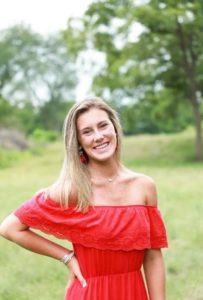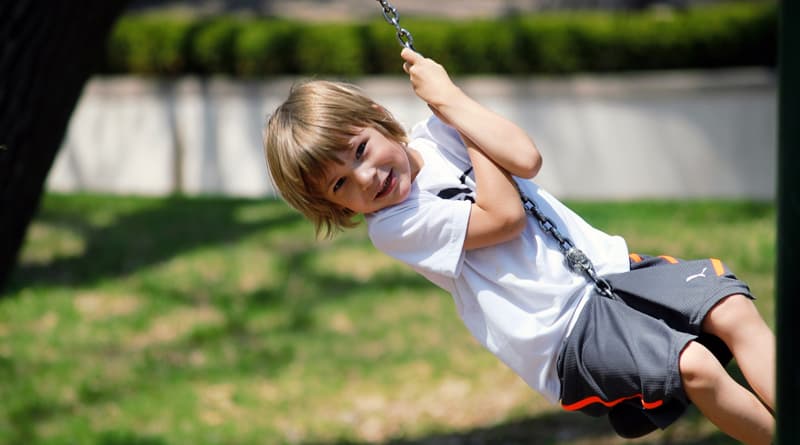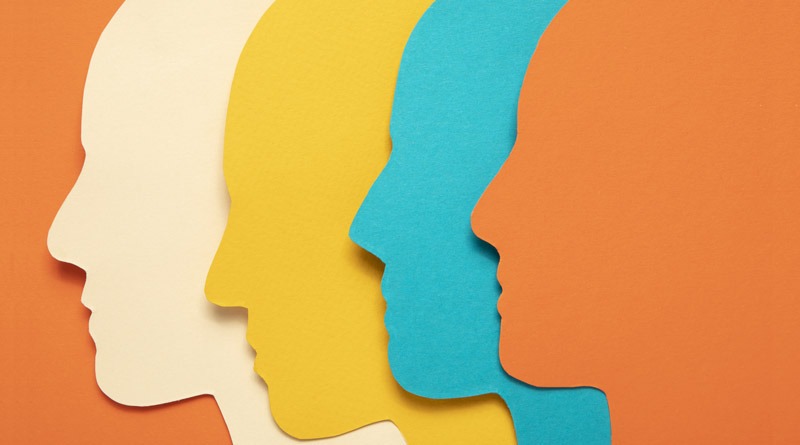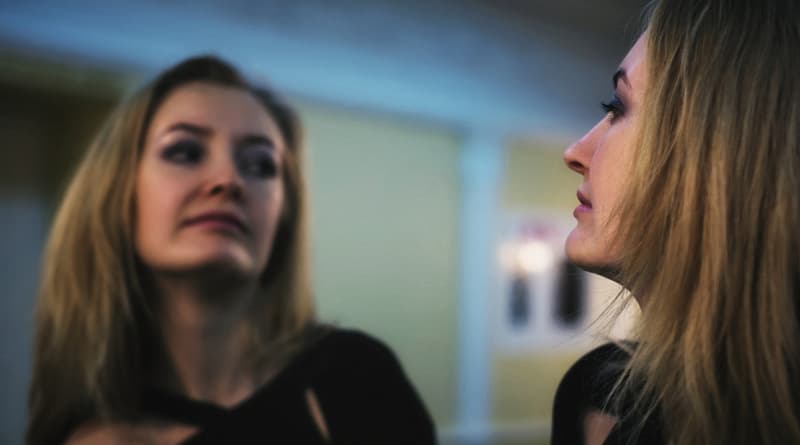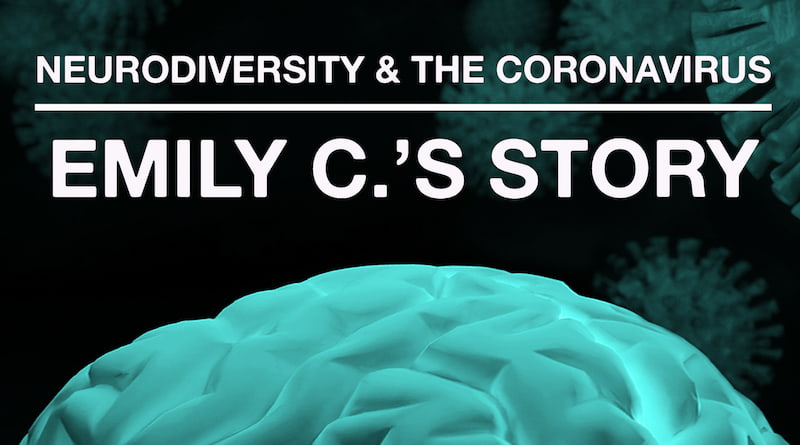
The Coronavirus Pandemic: Emily C’s Journey With OCD
The Pandemic: Emily C’s Story:
About the Author:
Emily is a student at the University of Central Florida. She is originally from Rockford, Illinois but has since moved to the sunny state of Florida. Emily is currently a freshman studying a major in biomedical sciences and a minor in biomedical engineering and Leadership studies. Her goal is to obtain her medical degree to become an orthopedic surgeon and to specialize in sports medicine.
Life Before the Pandemic:
Q: Describe your everyday life before the pandemic. Include social aspects, such as school, work extracurricular activities, or anything social, like spending time with friends or family.
A: Before the pandemic hit, I was a senior in high school. I was getting ready to graduate in May of 2020, and right around the time when everything started to get locked down, I was a cheerleader and I was finishing up our season. I would go to practice every weekday and every Saturday for two hours. I’d also go to school for eight hours a day. Before school started, I would have extracurricular meetings for clubs that I was in, honor societies, best buddies, student council, and then in the evenings, I’d go home and do homework and have dinner with my family. Sometimes, during the evenings, I’d go to a cheerleading gym and I would practice after I already did my two hours. First, I practiced tumbling skills, stunting skills, and anything that needed to be perfected for my routine. On the weekends, I’d hang out with friends, hang out with family, and go to cheer competitions. I would also go to the gym most days, and I was also a Zumba instructor at the time. About once or twice a month, I’d go to the gym to teach Zumba classes for an hour.
Reacting to the Coronavirus:
Q: Describe how you initially reacted to COVID-19 and the social distancing.
A: Well, at first, I was kind of excited about it because I got an extra week of spring break. I thought it would pass in a couple of weeks, we’ll be socially distant, and it’ll be good to go. Then, after the two weeks had passed, we were now on lockdown for a month in the state of Illinois because this where I was living before I moved to Florida in September of 2020. I moved to Florida for college and my family moved with me. Schools got shut down on March 13th, and that was the day before spring break, so initially, I wasn’t too worried about it. When it was the last day of spring break, my high school emailed all the students and said that we were out for another month. That was kind of shocking to me and I was a little worried and stressed than I was two weeks before because [the lockdown] was imposing on my high school prom and it was getting closer to graduation, so it was a little more stressful knowing that those events may not happen. We ended up not having either prom or graduation. Instead, we had to go to school to on some random day to pick up our diplomas and anything in our lockers before our school got locked down. It was very weird and unsettling.
My high school did not do what the other surrounding schools were doing when August 2020 came around, but I appreciate everything my school did to keep the students safe. There were ways that the other schools in our area allowed students to go back in the fall, but My school didn’t go back, even though every other school did. It was just kind of weird to see some of my friends not go back, but the other students in different districts get to go back and have in person school.
The social distancing and masks weren’t too bothersome to me. I’m used to not being around people as I’m an only child, so it wasn’t too difficult for me to socially distance. Although this wasn’t a big deal, it was a little awkward and discomforting not going to school for a month and a half when I normally would have been spending time with friends and being in classrooms everyday.
Changes & Adaptations:
Q: In what ways have your life and schedule changed as a result of the coronavirus?
A: I have a ton of free time (laughs.) I’ve gotten to do a lot more stuff that I’ve always wanted to do that I never have been able. Obviously, the stuff I did before, like cheering, schoolwork, and clubs weren’t a part of my everyday life anymore. I was always excited to go do those things, but now I didn’t have anything to do without them every day. Instead, I now have time to do things I never had time to do, like read a book or join a gym and just work out every day for a couple of hours. I started training for a half marathon, just for fun. [This free time] has allowed me try things that I’ve never been able to do, so for that, it’s kind of been a blessing. I’ve just been enjoying trying new things. I have really gotten in to cooking over this time. that’s probably one of the biggest schedule changers because I make time every couple of days to bake or cook something, so I’ve really enjoyed it, surprisingly. Not only have I been able to try new things and gain new experiences, but I have been able to take to relax and take time for me, which was definitely needed.
One thing that has changed that I’m not so much of a fan of is I do a lot of schoolwork and sitting around in my home instead of getting up and moving around. This stops me from getting to see somebody, or walking around school and enjoying the outdoors because you can’t really go anywhere. The restrictions make it kind of difficult to do those things, so you just kind of sit in your room. [The coronavirus] has had its pros and cons to it, for sure.
Q: What have you had to do in order to adapt to these circumstances?
A: I guess just be patient. I think with just how the world is changing every day, we just need to be patient with what’s going on and just take everything one day at a time. My schedule can change drastically day-to-day just because of different restrictions I have for classes or different issues that come up because someone may have been exposed to COVID that I was planning on seeing that afternoon. Obviously, this would change my plans change and I can’t go see them anymore. It’s just kind of letting everything happens as it happens. I can’t make plans too far in advance or someone may be exposed to COVID that I’ve been in contact with since they’ve been exposed, so now I can’t take that flight to see my other friend that I had planned to go see. We just need to be patient with circumstances like that and how the world is working nowadays because if we aren’t, it will make our lives that much harder.
OCD & The Coronavirus:
Q: If you are neurodiverse, how has this pandemic affected your conditions, or how have your conditions affected how you’re dealing with the pandemic?
A: I’m currently not diagnosed as neurodiverse, but I do show some behaviors along the lines of OCD. I’m currently in the works of getting tested for OCD. The pandemic has probably increased some of the behaviors that I already had. There’s a part of OCD where people can have excessive face-picking and you can create open wounds on your face. I’ve definitely noticed that my behavior along those lines have increased and I do fidget a lot. Just like moving in my seat, fidgeting with my hands, ad needing to change the way I sit are small behaviors I have notice become more excessive in my everyday behavior. I noticed that I get really fidgety or a little bit more anxious in high stress situations such as during the school day or when taking an exam.
Something that help me with [those behaviors] is bringing back my fidget spinner. They were totally a fad a couple of years ago, but I use mine religiously every day because it distracts me from picking at my face or fidgeting. It keeps me focused on working on schoolwork and not looking at other things in my room or getting distracted by something that’s going on behind me. My fidget spinner is my saving grace!
Coping With COVID
Q: Aside from your fidget spinner, what coping mechanisms are you using to deal with these strange times?
A: Another big coping mechanism is cooking. Over quarantine, I have grown into enjoying cooking and baking a lot more this year. When COVID first started (and the quarantine was happening,) I didn’t have much schoolwork because my teachers obviously weren’t prepared to do online school, so they didn’t have much to give us. I would bake so much throughout the week. It was calming and therapeutic in a stressful time. I probably made 30 loafs of banana bread in the span of a month. I still do cook even a year after this has started. I don’t bake as much now obviously because now I’m in college and my teachers are still providing me with a lot of work to do. I try and cook about once a week. I also keep myself busy with working out. I love to exercise, so I go for about two hours a day. It could be strength training or cardio and even yoga classes instructed by YouTube videos. Yoga has really helped me. This year, I have enjoyed it a lot. That has definitely helped me through the coronavirus pandemic, and helped me focus on my schoolwork. I do short videos during the day to take a break from sitting in a chair all day and to get me moving throughout my day. I focus a lot of my time and energy to my schoolwork because it benefits me by doing it. If I’m not doing [my schoolwork] to the best of my abilities, I feel like I’m not getting what I can out of college, so I spend a lot of time just doing schoolwork just because I am sitting in my room and not doing a ton of stuff due to COVID. There’s not a lot going on, so I think just doing those things every day and keeping my schedule busy with busy work and all of those coping mechanisms has really helped me stay focused through the pandemic.
Life Lessons & Advice:
Q: What have you learned about yourself during these circumstances?
A: I think I’ve learned that I enjoy the outdoors a lot more than I thought I did. I’ve been able to [spend more time outside during COVID] because I haven’t been able to make plans to go see people. I spend a lot of time outside exercising by walking, so I have learned enjoy the outdoors. I also didn’t realize how much we depend on others to create joy and happiness, or how those moment when you’re spending time together creating bonds, and how much we take them for granted. Right now, we’re not really able to do those things. If we know that those people are staying indoors and not being socially interactive with other people, we know we can spend time with them, but if they’re not, then we’re not able to go see those people that we love and enjoy spending time with. I learned not to take for granted those people and those relationships that we have in our lives because what if they are gone one day or we can’t have access to them because there’s another pandemic?
Q: What advice would you give to someone that’s having a difficult time dealing with the coronavirus?
A: I think people are so stressed and worried about what their next move is with this pandemic and what it’s going to do next. So, I would just say to take a deep breath and relax. There’s nothing that we can do right now, sadly. I think as much as we should be worried about what will happen in the next weeks and months, we need to just let this thing run its course so that when it is done, we are able to back and enjoy what we used to be able to do and experience. We will be so much better off if we just do that. We can be excited for our future after the pandemic, but we shouldn’t be stressed about the future because it will only make the waiting worse. I believe it will all work out in the end. We just all need to continue to believe it together.
Story by: Emily C
Transcribed by: Julia Futo
Interviewed on: February 3rd, 2021
Julia Futo was born on August 5th, 1999, in Fort Lauderdale, Florida. She faced difficulties early on in life with trying to perform everyday tasks. Before she was five years old, she was diagnosed with two learning disabilities: Encephalopathy and developmental coordination disorder (DCD). She struggled in school for a long time, but that changed when she took journalism in high school and learned how to become an advocate. She is currently in college and hopes to help others find their voices.

